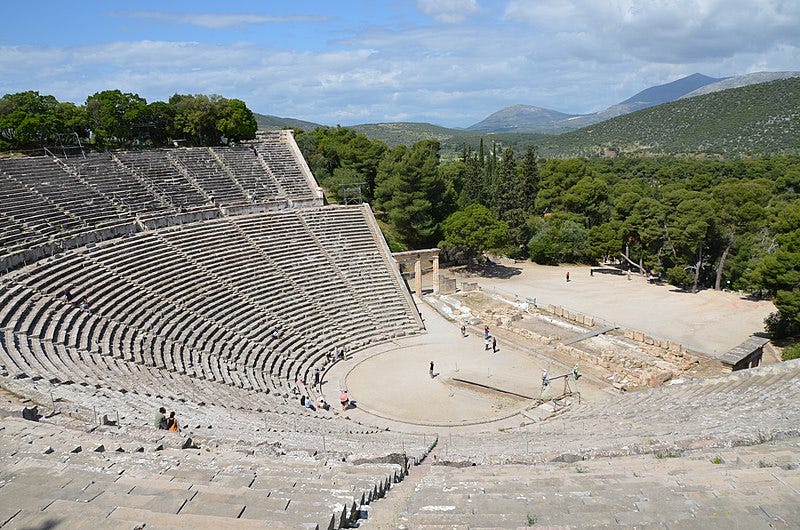The Vital Role of Play: Insights from Nature and Ancient Cultures
Written on
Chapter 1: The Significance of Play
In our contemporary society, there is a strong emphasis on work, which can be traced back to our early human history when survival depended on labor. Gathering food and building shelters were paramount, making work an essential part of life.
As children, we are often asked about our future ambitions, indicating that adulthood is inherently linked to the concept of work. Viktor Frankl, in his renowned book "Man's Search for Meaning," illustrated how envisioning future endeavors helped his fellow prisoners endure the harsh realities of a German concentration camp during World War II.
This drive for productivity is mirrored in the animal kingdom, where creatures such as squirrels, birds, and bees appear to be perpetually busy. However, science has revealed that there exists another fundamental instinct shared by humans and animals alike: the instinct to play.
Play is an intrinsic part of our being, rooted in an ancient section of the brain. This primal urge is not only present in humans but is also observable in various animals, even those one might not expect.
Section 1.1: The Science of Play
Every child instinctively knows how to engage in play, and research shows that even the simplest creatures, like bees, possess a strong desire to engage in playful activities. Historical evidence also suggests that ancient civilizations recognized the importance of play.
To uncover the reasons behind this widespread phenomenon, scientists have turned their attention to the animal world.
Subsection 1.1.1: Bumblebees and Their Playful Nature

Recent studies, as reported by Phys.org, have shown that bees can be trained to move balls in exchange for rewards. Surprisingly, these bees would also engage in this behavior purely for enjoyment, indicating that even these small creatures may experience positive emotions through play.
Now, consider this fascinating aspect: rats have been observed to laugh.
Neuroscientist Dr. Jaak Panksepp, renowned for his extensive research on rodents, discovered that when rats play, they emit high-frequency sounds akin to laughter. In playful experiments, rats responded positively to being tickled, returning for more interactions with enthusiasm.
Later studies at Humboldt University of Berlin demonstrated that rats engaged in games like hide and seek without needing any external rewards, as they exuberantly played until exhaustion, displaying "joy jumps."
In an interview with Brainworld, Panksepp articulated that play originates from primitive brain regions essential for survival and socialization. He emphasized that play is crucial for learning social interactions and brings joy to life.
Chapter 2: The Ancient Greeks and the Value of Play
The Greeks are credited with establishing the Olympics around 776 BC, underscoring the significance of games in their culture. Historical accounts indicate that these games were so vital that wars were postponed to allow for their celebration.
During the Olympic games, a truce known as ékécheiria was observed, permitting safe passage for athletes and spectators alike.
F.S. Naiden's "Soldier, Priest, and God" highlights that even Alexander the Great's army paused to partake in games, celebrating victories and honoring the deceased amid ongoing conflicts.
Moreover, the Greeks valued music and theater as integral components of play. Learning to play the lyre was a standard part of education, endorsed by philosophers like Plato in "The Republic." The theatrical arts flourished, with performances that combined music, poetry, and athletic competitions.

Aristotle studied theater's impact on audiences, referring to it as a "soul lifter," which could explain the substantial resources dedicated to the arts and games in ancient Greece.
Section 2.1: The Joy Circuit of Play
In contemporary research, institutions like Stanford University are exploring how AI can learn through gameplay, mimicking human-like interactions to develop cognitive skills. However, AI lacks the intrinsic joy that accompanies play, a vital element shared among humans and animals.
Panksepp poignantly noted, “without laughter there will not be much joy in life,” emphasizing the significance of play in our existence.
The Bhagavad Gita similarly underscores the importance of work but stresses that the desire for outcomes should not overshadow the act of working.
The essence of play enriches our lives, offering the necessary energy to engage in work and providing the joy that motivates us.
Ultimately, what connects the ancient Greeks, playful rats, and cheerful bees? The answer is play—a vital component that serves to uplift our spirits and fulfill an essential purpose in our lives.
If you wish to explore more captivating stories like this, consider subscribing to my mailing list. Joining Medium will also grant you access to diverse writers, and your support will contribute to my ongoing projects, such as developing a prototype for a rat trap designed like a hide-and-seek box.
Chapter 3: The Power of Play
The first video titled "The Power of Play: The Unexpected Truth about Play in Nature" delves into the significance of play across various species, highlighting its impact on development and socialization.
Chapter 4: Loneliness in the Modern World
The second video, "The Modern World Is Making Men Lonely, Addicted & Lost! - Escape Society's Matrix | Gabor Matè," discusses the consequences of societal pressures and the importance of connection through play.